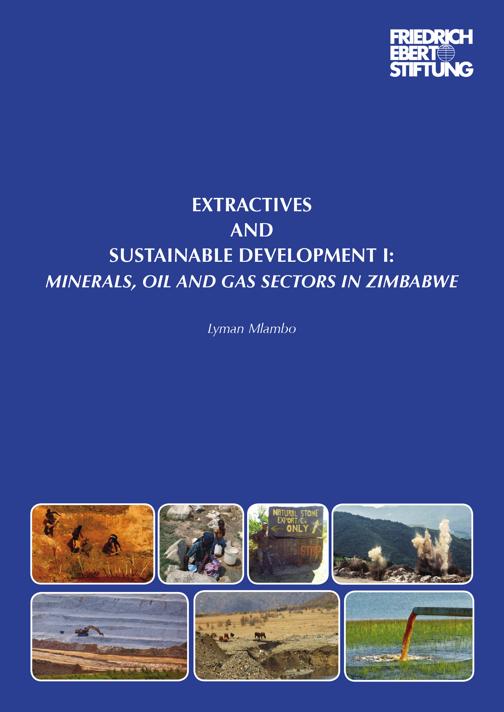Publikationen der StiftungExtractives and sustainable development I Titel
Titelaufnahme
- TitelExtractives and sustainable development I : minerals, oil and gas sectors in Zimbabwe
- Verfasser
- Körperschaft
- Erschienen
- Umfang1 Online-Ressource (71 Seiten) : Diagramme
- SpracheEnglisch
- DokumenttypDruckschrift
- Schlagwörter
- Geografika
- ISBN978-0-7974-7672-1
- URN
- Das Dokument ist frei verfügbar
- Nachweis
- Archiv
Zimbabwe is going through social and economic challenges. One of the paths to resolving these challenges is to make sure that appropriate policies in different sectors of the economy are developed to support and champion development in a sustainable manner. One of the country�s critical factors in the economy is the extractive sector. The vast endowment of resources in the country offers opportunity for the future, if utilised sustainably. At the same time industrial investment in Africa has not seen the much needed social and economic development and has at times been mired in scandal. There is an emergent consensus that the extractive sectors are externally driven and continue to benefit multinational companies and a few national elites at the expense of local communities and citizens in general. FDI has been a major source of development initiatives. This has been mainly driven by the fact that African governments have failed to effectively leverage resources from extractive sectors as well as channelling their respective country�s wealth into substantive improvements in the lives of their populations. Like many other African countries, Zimbabwe has close ties with some of the BRICS-States, as they are regarded as being central to the country�s economic revival. There has been an upsurge of Russian, Chinese and South African investments in Zimbabwe�s extractive sector over the past decade, yet mining has been characterised by environmental degradation, tax evasion, human rights abuses and exploitative labour practices. Arguably, Zimbabwe has been affected by the �resource curse� as there is no significant development outcome attached to the revenues that are generated from the vast resources, yet on the whole the investment appears to be welcomed, thus there is need to interrogate the overall economic framework of the mining sector. On the other hand, extractive industries have seen increased participation by local small-scale and semi-large-scale extractors while the consequences are borne by the population at large. This publication seeks to characterise the mining sector in Zimbabwe and interrogate the governance framework in the sector and what factors could explain the lack of a sustainable development path
